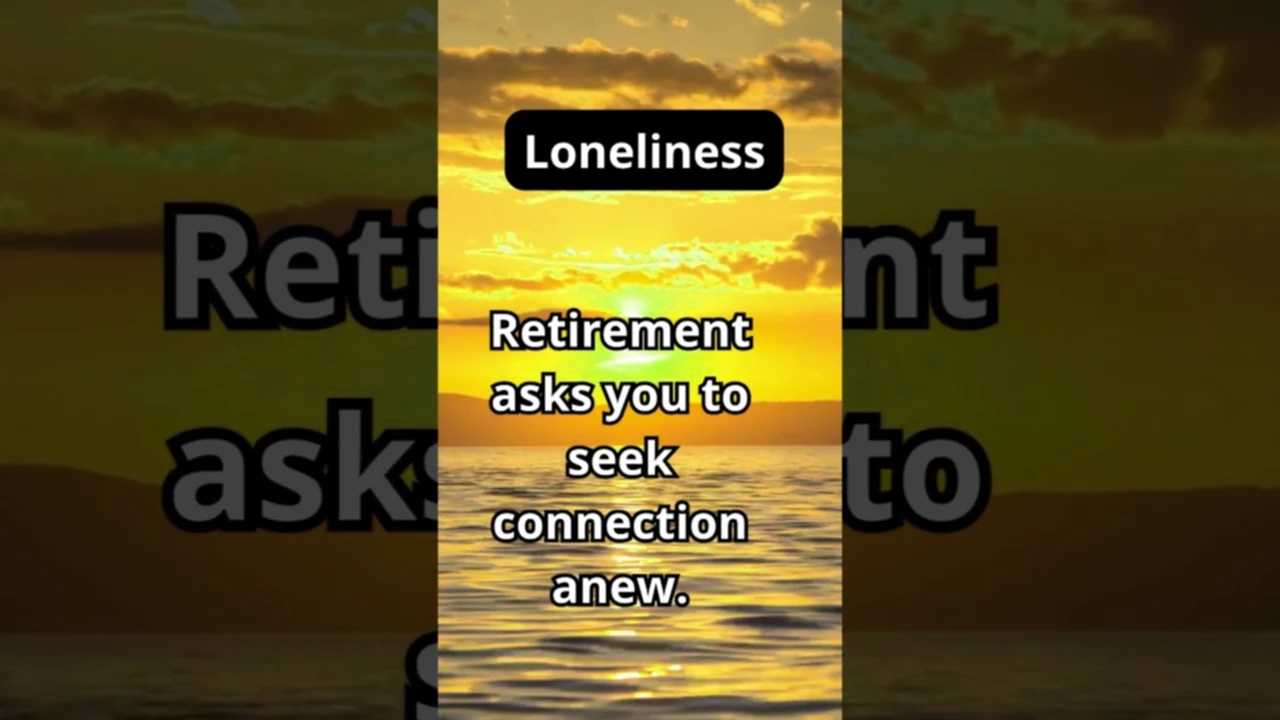A staggering 43% of retirees report feeling lonely. This isolation can significantly impact physical and mental well-being. This article explores effective strategies to build a rich social life and avoid the pitfalls of loneliness after retirement.
Understanding Retirement Loneliness
Retirement often brings significant life changes – a shift in routine, loss of work colleagues, and a decrease in structured social interactions. But why is this so prevalent? The transition can leave many feeling lost and disconnected, leading to feelings of isolation and loneliness. This isn't simply about lacking company; it's about the absence of meaningful connection.
Common Causes of Retirement Loneliness
- Loss of social structure from work
- Reduced daily interaction with colleagues and clients
- Changes in social circles due to relocation or shifting priorities
- Difficulty adapting to a new routine and finding purpose
- Health issues limiting social opportunities
Strategies for Building Connections
Overcoming retirement loneliness requires proactive effort and a willingness to step outside of your comfort zone. Just as a farmer nurtures their crops, we must cultivate our social connections. Let's explore practical steps.
Finding Community and Purpose
| Activity | Benefits |
|---|---|
| Volunteer work | Provides purpose, social interaction, and a sense of belonging |
| Joining clubs or groups | Offers opportunities to meet like-minded individuals and participate in shared activities |
| Taking classes | Encourages learning, personal growth, and social interaction |
Developing Meaningful Relationships
Building genuine connections takes time and effort, but the rewards are immeasurable. Think of it like nurturing a plant – consistent care leads to beautiful growth. It requires attentiveness and engagement. It’s about genuine interest in others and fostering reciprocal relationships.
Cultivating Deep Connections Beyond the Internet
While technology can connect us, it's crucial to prioritize in-person interactions for true emotional connection. Face-to-face communication fosters empathy and understanding in a way that digital interactions often can't replicate. Prioritize quality time with loved ones and actively seek opportunities to meet new people in real-life settings.
“The best way to find yourself is to lose yourself in the service of others.” – Mahatma Gandhi
This quote underscores the power of connecting with others through selfless acts. Volunteering, mentoring, or simply offering assistance to a neighbor can foster meaningful connections and combat loneliness effectively.
FAQ
- Q: I'm shy and find it hard to make new friends. What can I do? A: Start small! Attend a local event, join a book club, or volunteer in an area of interest. Focus on being present and engaging in conversations, even if it feels awkward at first.
- Q: My friends are all busy, and I feel isolated. How can I overcome this? A: Actively reach out to friends and schedule regular meetups. Don't wait for them to contact you. Explore new hobbies or activities that could help you meet new people.
- Q: My spouse passed away, and I feel incredibly lonely. Where can I find support? A: Grief support groups, counseling, and connecting with other widows/widowers can offer valuable emotional support and understanding during this difficult time.
- Q: How can I stay active and engaged after retirement? A: Explore your interests! Take up a new hobby, volunteer, travel, or join a fitness class. Staying active physically and mentally is essential for overall well-being and combating loneliness.
- Q: Is it normal to feel lonely after retirement? A: Yes, it's a common experience, but it doesn't have to be a permanent state. Taking proactive steps to build connections and engage in life can significantly reduce feelings of loneliness.

